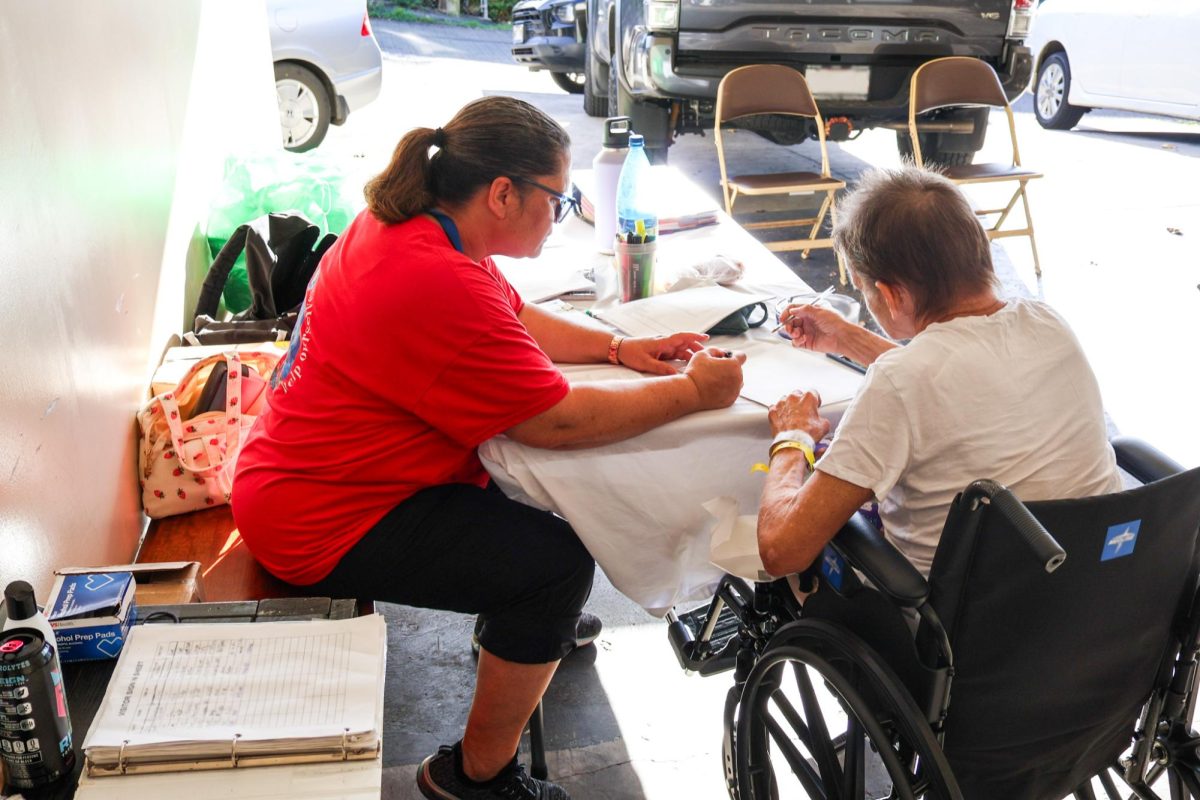
Photo Courtesy of IHS
Houseless populations are often blamed for crime in an area, but experts point to the underlying issues, such as substance abuse and severe mental health disorders.
“When you look at the homeless, there are some people who are just down on their luck. But the two most resistant groups are the mentally ill and the drug user population,” former deputy chief of the Honolulu Police Department John McCarthy said.
Since Jan. 21, Hawai’i’s House of Representatives has been moving House Bill 943, which expands on existing intervention plans, requiring and allocating funds for the Department of Health to establish the Homeless Triage and Treatment Center Program. This bill is meant to focus on homeless persons at risk of substance abuse and mental illness.
“This bill is much needed,” said Sergio Alcubilla, a long-time community advocate. “Whatever we can do to help our houseless population.”
Angie Knight, community relations manager at the Institute for Human Services, has been in communication with Rep. Itaika Olds, one of the initial sponsors for the bill, since mid-January. Through Olds’ efforts, “nearly half of the house signed on for its introduction,” which is an amazing feat to accomplish.
However, McCarthy also believes these treatment plans might not be as effective as people hope they’d be.
“A lot of the drug users I talk to say they have time to clean up so when they come out, they can experience the full force of the drugs again,” McCarthy says. “You can’t force them to use these services, they have to want to quit.”
Of the individuals that are admitted into the withdrawal program, Knight says that 70-80% of intake are successful, adding that the initial part of substance abuse treatment is ”intense.”
She also attributes the success to the fact that the program is community-based and has established rapport with outreach workers in the inpatient treatment programs.
“Those programs need us to do the initial detox before moving forward with the program,” she said. “Our homeless and triage center is the pilot; this bill is about creating a permanent program within the Department of Health for programs like ours to exist.”
“I think this bill is a step in the right direction,” says Alcubilla. He believes the bill tackles issues the houseless face in multiple ways, as individuals are able to overcome the barriers of drug and mental health issues because they are given access to necessary care. Funding remains a concern for him.
“I think the last version of the bill allocated $500,000. My concern is that, is that enough to run this program?”
The bill continues to move forward through the state legislature.